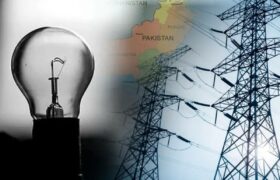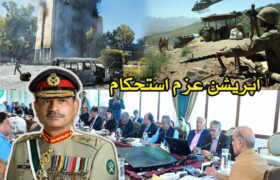By Kashmala Yousafzai
It is been 20 years since the 9/11 attacks which led to many wars and has changed the history. Afghanistan and Pakistan continuously affected by this incident for the last 20 years and still facing the same situation due to US withdrawal, which once again has given rise to some new but serious issues, concerns and challenges in the region.
The 9/11 attacks killed at least 3,800 people, but over the past 20 years, the United States and its Western allies’ wars have led to deaths of nearly 300,000 people in the name of counter-terrorism in about half a dozen countries. There is still a state of war, unrest and insurgency.
Ironically, no Afghan or Pakistani were directly involved in the incident. The attackers were all Arabs and al-Qaeda had no public support in Pakistan or Afghanistan. However, after the attack, President Bush Jr. and his team called it a continuation of the Crusades and not only invaded Afghanistan with allies, but also tried to test the Western theory of the clash of civilisations as well as the New World Order.
The war in Afghanistan over the past 20 years has killed nearly 200,000 people, including 15,000 foreigners, while terrorist attacks in Pakistan have killed nearly 90,000 people, including important figures besides 12,000 personnel and officers of armed forces of Pakistan. However, despite 20 years of investment, continuous operations and other initiatives, peace has not been established in Afghanistan and the goals that were claimed to have been achieved have not been achieved. The world has seen Afghan Taliban entered Kabul without resistance on August 15 and the full withdrawal of the United States and its allies on August 31.
President Joe Biden acknowledged the defeat, saying his investment had been wasted and that he did not want to push the third generation of Americans into the war. Challenging the status of power, he even said that America is no longer a superpower.
After 20 years of resistance, the Afghan Taliban became the rulers of Afghanistan again, while the Afghan rulers and institutions backed by the international community fled the field. The United States and its allies have lost about three to five trillion dollars. Experts called 2021 the month of even greater defeat for the United States than Vietnam, calling Afghanistan a graveyard of empires, and interpreting its withdrawal as a complete defeat, calling it the first embarrassing failure of NATO besides the United States, because not only the United States was defeated but about fifty of its allies were defeated here in Afghanistan.
This failure was not limited to military defeat, but the trillions of dollars, which were spent on institutions in Afghanistan, were lost due to the collapse of the system, resulting in a large number of Americans besides allies questioning the United States’ policies. On the other hand, Joe Biden, by adopting a policy of declaring Russia and China as enemies of the future, began to signal that the game is still on and much remains to be done.
The Afghan war has effected Pakistan heavily facing over 600 drone strikes and suicide bombings. Nearly 100,000 people were killed and billions were lost in economic losses. On the other hand, it continued to receive threats including global pressure and sanctions.
Every effort was made to isolate Pakistan, but after the year 2018, when the need for dialogue arose, the global attitude began to change and Pakistan’s importance increased not only in the form of the Doha Agreement between the United States and the Taliban in January 2020. Pakistan also played a key role in the progress on Afghanistan. The United States continued to view Pakistan’s role with the same skepticism as the Afghans, but the Taliban advances and other unforeseen circumstances made the world look towards Pakistan for help once again. On the other hand, China, Russia, Iran and some European countries sided with Pakistan by recognising its regional and global role, the new development in Afghanistan was also credited to Pakistan.
The areas of Pakistan and Afghanistan that have been badly affected in attacks, insurgency and unrest over the past 20 years were unfortunately Pashtun areas because they share borders with Afghanistan. Extremists continue to take advantage of this while but the focus on new military economic and administrative measures and reforms in the National Action Plan, border fencing and erstwhile FATA integration led to improvement.
Pakistan has played a pivotal role in bringing relative peace to Afghanistan specially and region in common by facilitating safe withdrawal of US and NATO forces. Pakistan hopes for a better future for Afghanistan and the region.




